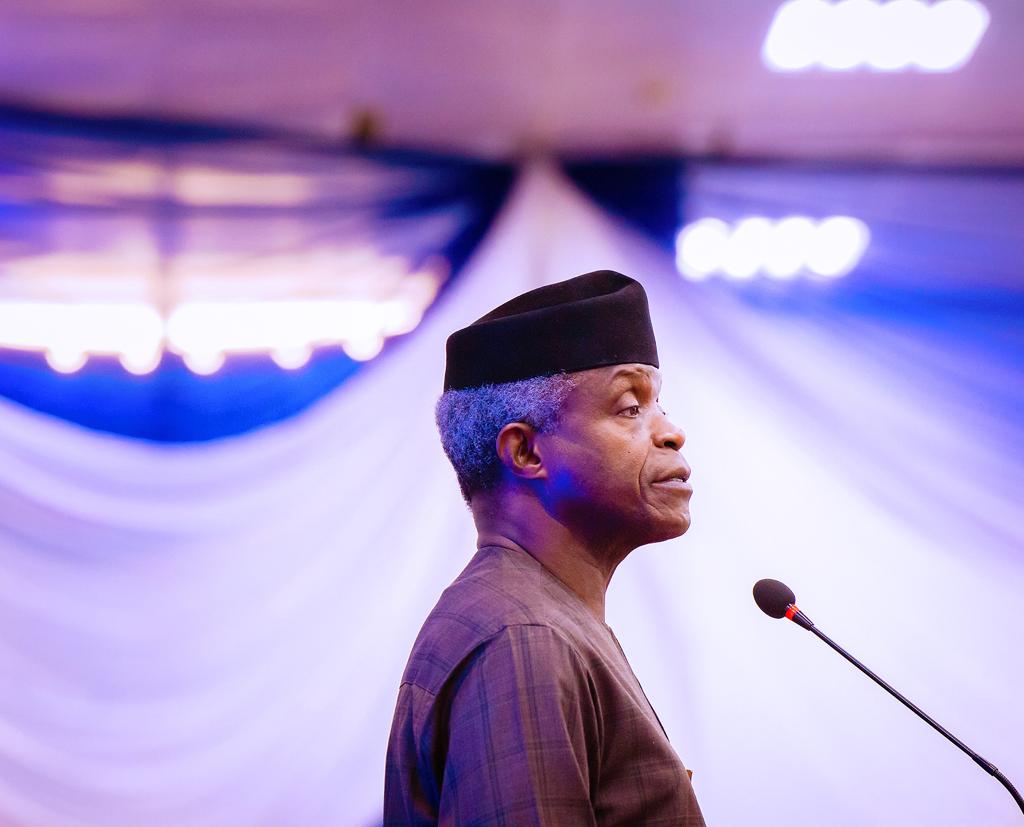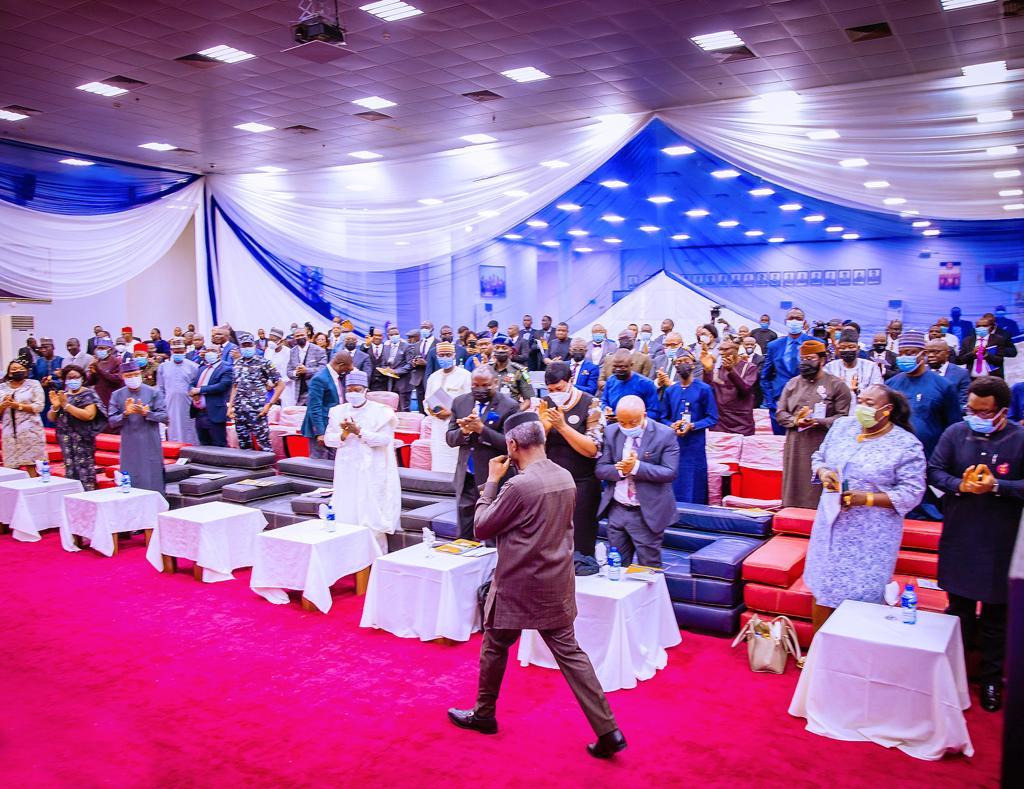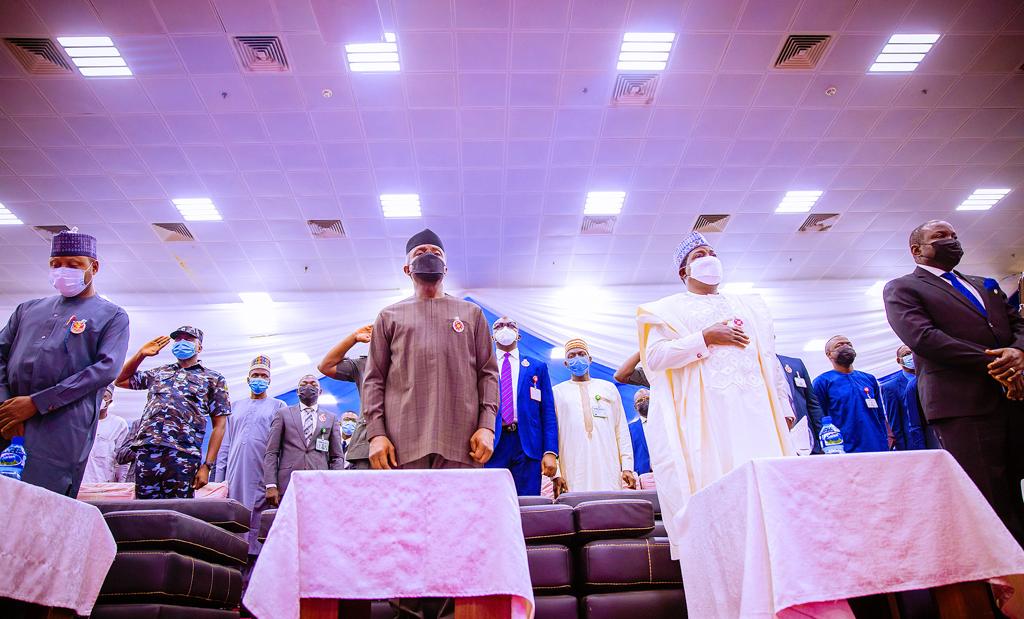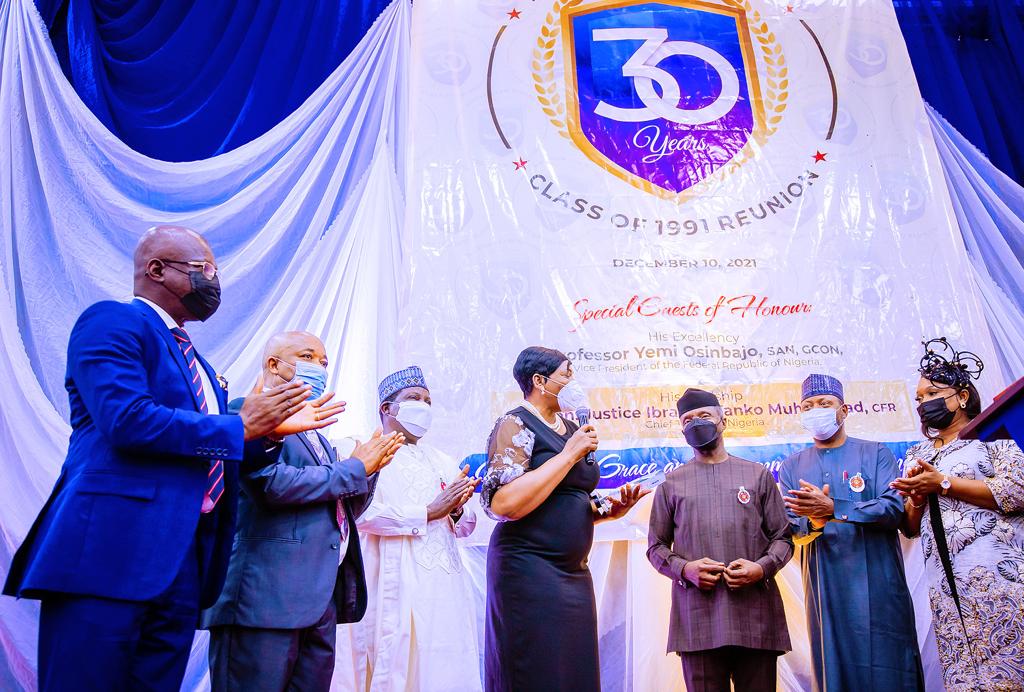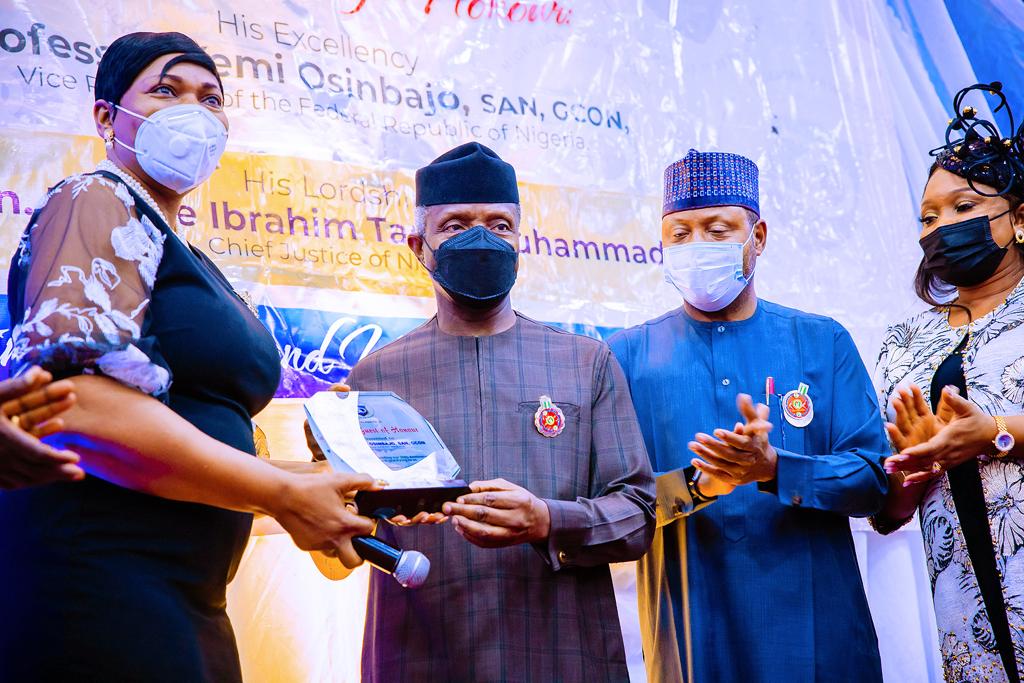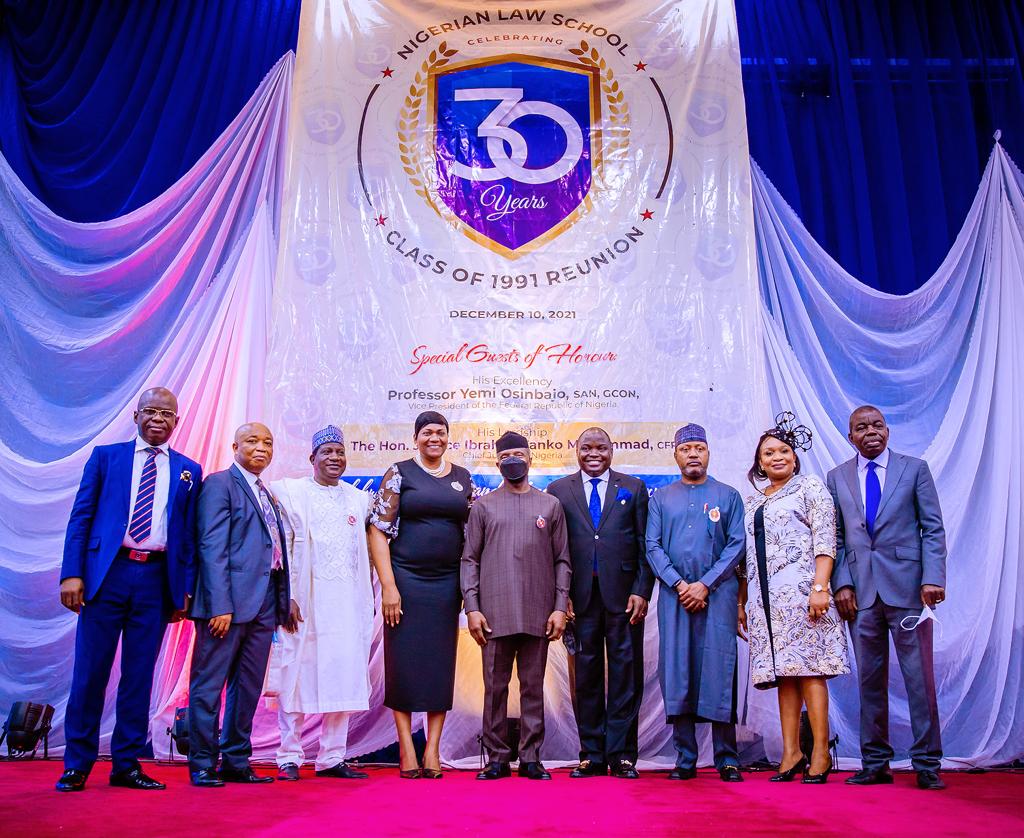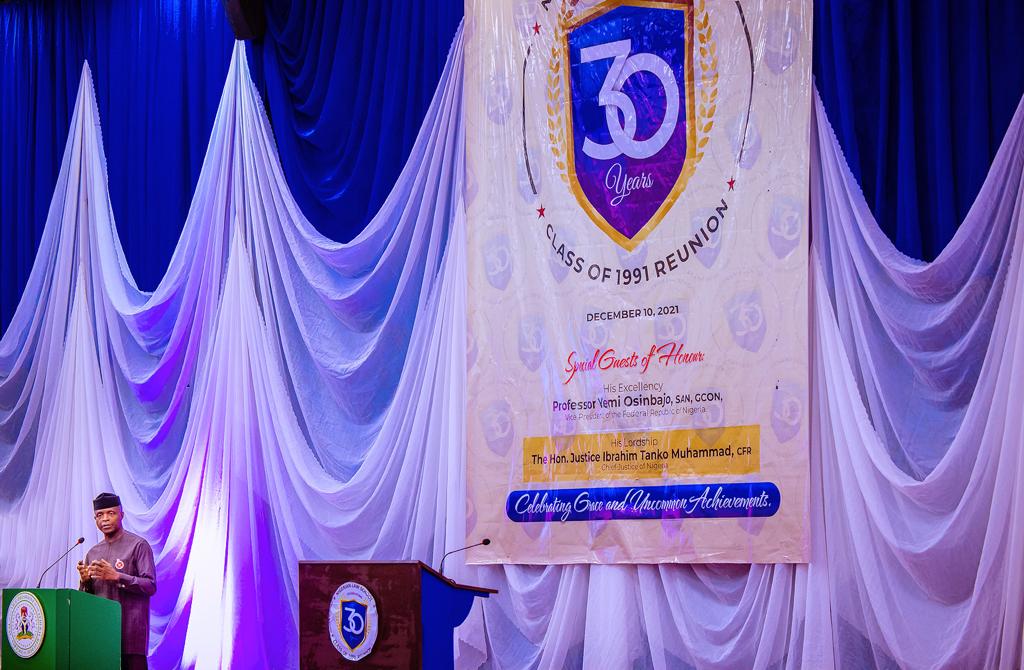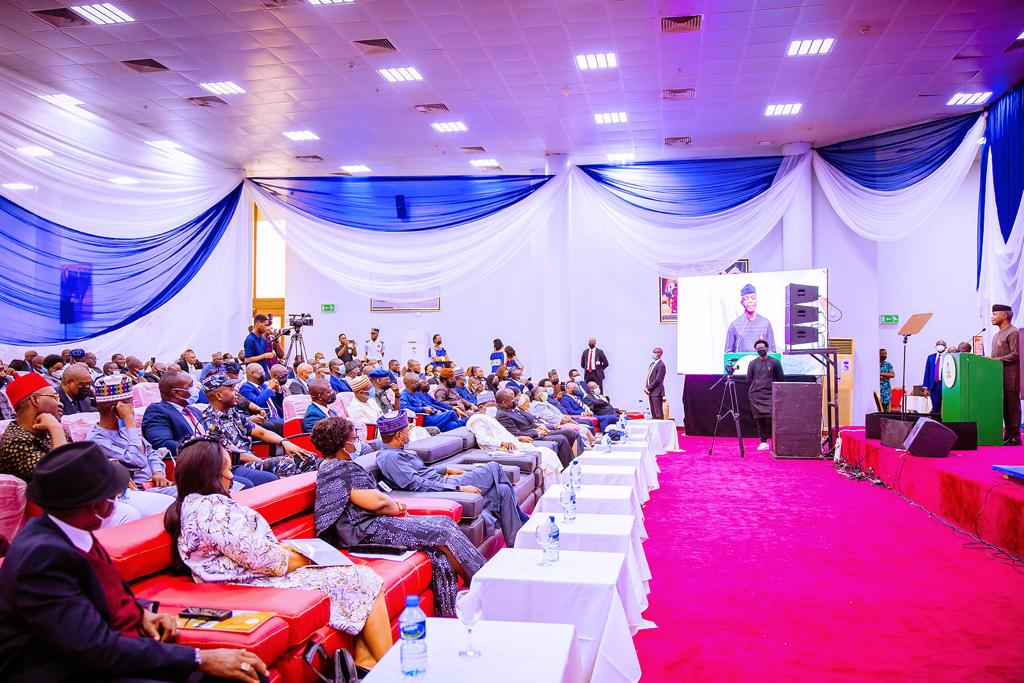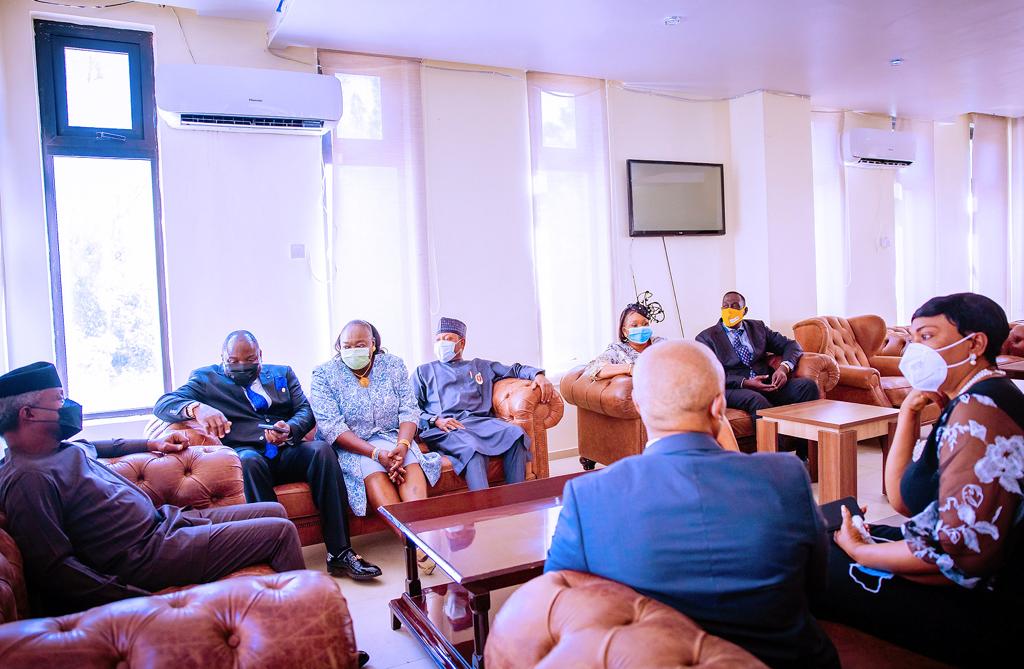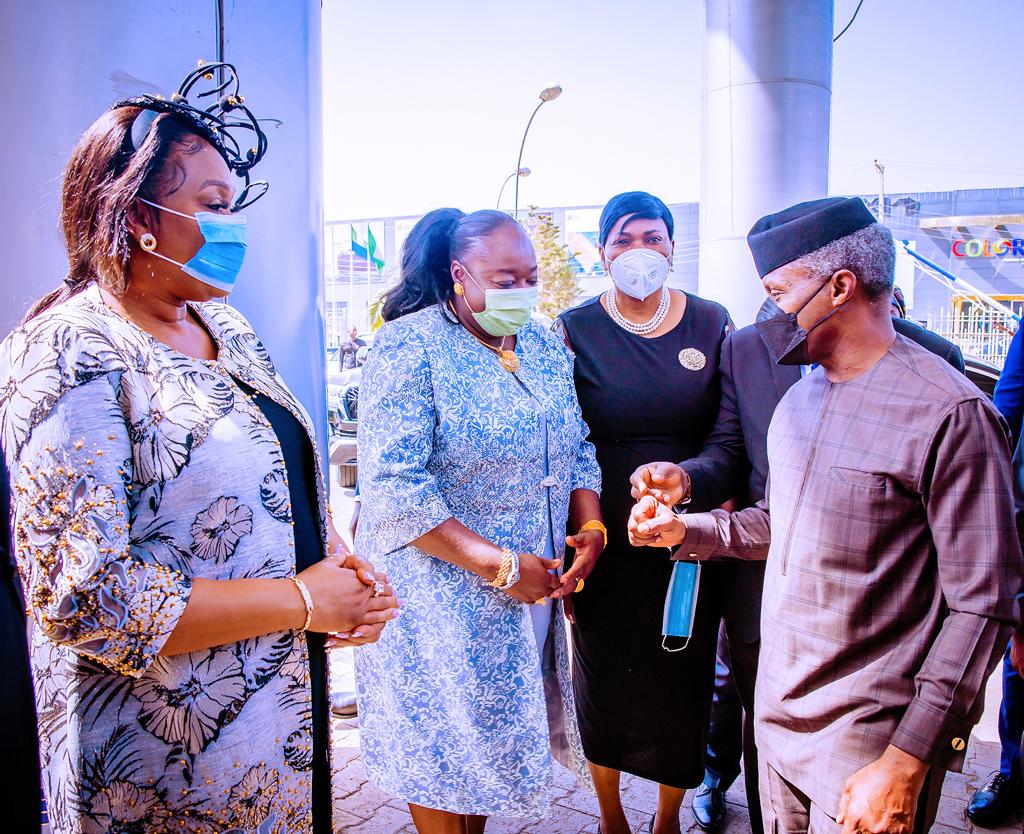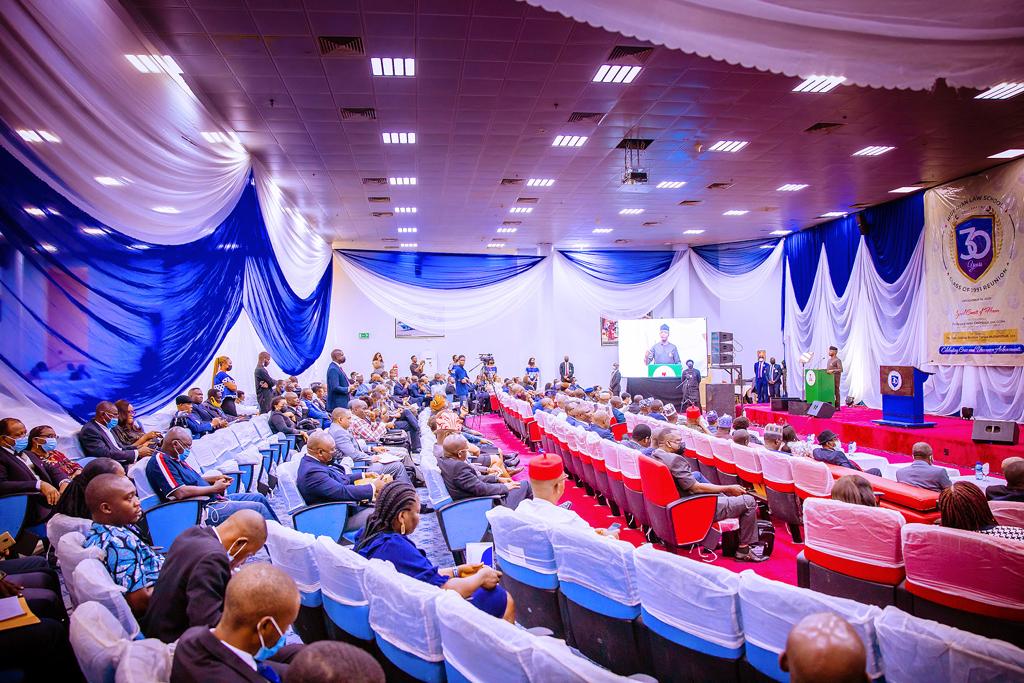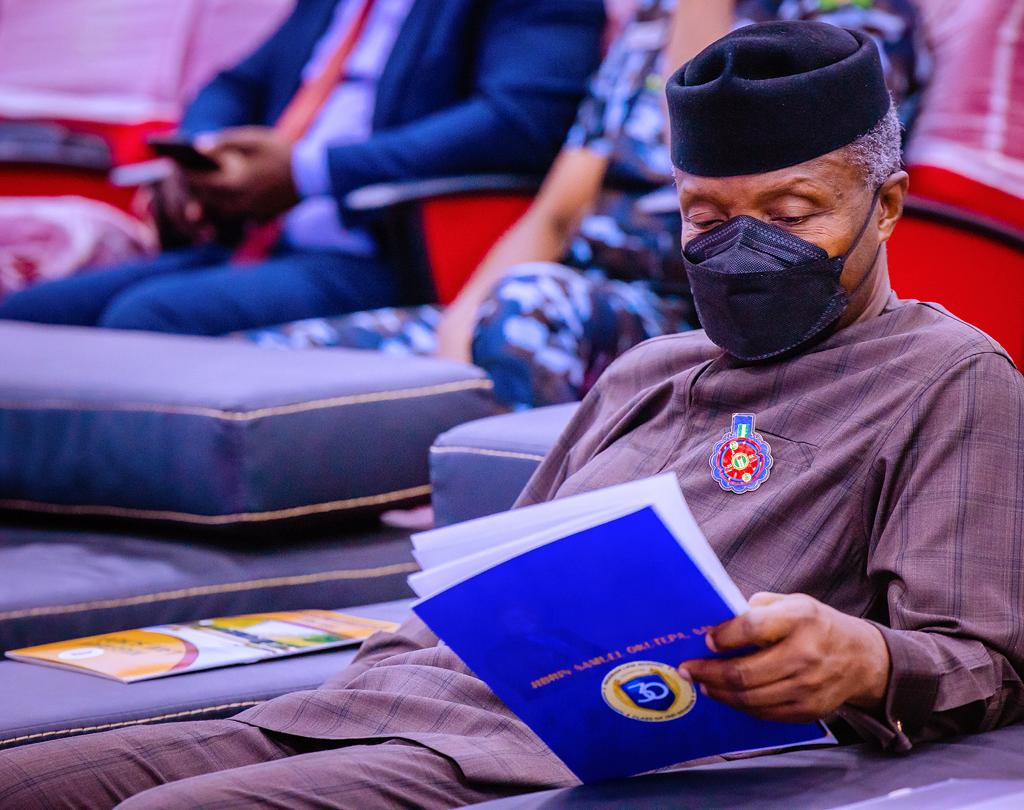30th Anniversary Of Nigerian Law School Class Of 1991
REMARKS BY HIS EXCELLENCY, PROF. YEMI OSINBAJO, SAN, GCON, VICE PRESIDENT OF THE FEDERAL REPUBLIC OF NIGERIA AT THE 30TH ANNIVERSARY OF NIGERIAN LAW SCHOOL CLASS OF 1991 ON THE 10TH OF DECEMBER, 2021
PROTOCOLS
My brothers, Mr. J.S Okutepa, SAN class leader; Dr. Paul Ananaba, SAN, and members of the planning committee of the Nigerian Law School Class of 1991, thank you for the honour of this invitation as Special Guest of Honour at your 30th Anniversary and Reunion.
I must thank my dear brother, Mr. J.S Okutepa, SAN, for reminding me that I am only a “small Vice President.” I agree especially when compared to my illustrious predecessor, Dr, Alex Ekwueme of blessed memory. A man whose exemplary life of integrity, humility, and constant search for knowledge and truth has remained an important reference point for all serious holders of public office in Nigeria.
The class of 1991 deserves every commendation for forming an Alumni Association, by definition, being an active alumni member means that one is a community-oriented person, one is altruistic and public-spirited. The reason is that alumni associations are about giving back and it is evident that the class of 1991 is intent on giving back and we have been informed that awards and scholarships will be given to 30 young men and women who are at the moment at the law school and finding it difficult to pay their fees. Well done indeed.
Let me assure you that every investment in a lawyer is a good investment. These young men and women will very quickly, as Mr Okutepa has shown us that it doesn’t take so long, begin to wear designer suits. He hasn’t said anything about the private jets, we can also talk about that, and the tax people aren’t around today, so you can feel free to talk about all this wealth (General Laughter).
Mr. Okutepa reminded me of our encounter in a case involving the present Minister of Niger Delta Affairs, but my client at the time is the current Caretaker Secretary of the APC. Let us just leave the details of that matter. Just to say that it was an interesting encounter.
Belonging to the legal profession is an incredible privilege, and I’m sure all of us who are lawyers agree. Today, we are told that there are fewer than 150,000 lawyers living or dead in Nigeria. 150,000 compared to a population of 200million is certainly a minute number indeed.
These are men and women trained in the principles and concepts of laws in their applications to life from the cradle to the grave. Every aspect of life is governed by law in one shape or form or the other. The theoretical and practical imperatives of social justice, rule of law, and all of these concepts that are meant to guard and guide our lives and guard our systems, we are the ones that are specially trained in the principles and concepts of all of these laws.
The training a lawyer receives is at least in terms of practical relevance to human engagements at all levels, is second to none. I do not believe that there is any other profession that is meant to equip you for every aspect of life. Even medical doctors will agree that when a matter of medical negligence comes to court, the lawyer is expected to be the defender.
There is a law or regulation on everything from birth to death, and the interesting thing is that people believe that a lawyer knows all these laws whether he or she has even practised law since leaving law school.
I am sure at various times, the moment people know you are a lawyer, they almost invariably seek your legal opinion on something or the other, and it is a very special privilege indeed.
I remember the story of a female relation of mine who met me at a family event years ago. The long and short of her story was that her husband had taken a second wife after she was married to him by statute, English Law, but what was worse was he had told her to stop using his name. This upset her terribly and she asked me what my opinion was, and knowing that I am a lawyer, she expected that I would give her an opinion that would be helpful.
I explained to her that he would not succeed in court because no one has legal title to his name. In other words, unless you are a company or trade, you have no title to your name. In order words, someone can decide from tomorrow that his name is Yemi Osinbajo, and I can’t argue. If the person uses my name for fraudulent means, that is a different matter.
I explained all these to her and she was quite happy knowing that her husband would not succeed in court if he were to take her to court.
What then happened is what I found most striking. About 3 months after, she sent me a photograph on WhatsApp and it was a photograph of a dog, and it had a collar with a name. I expanded the photograph to look at the name, which was the name of a lady. I asked her whose name that was, she explained that following my legal opinion, she had named her new dog after her husband’s second wife. At this point, I had to issue a disclaimer to her that she should never quote me and I wasn’t the one who gave her that advice!
People take legal advice and lawyers seriously and the worst part of it is that once people know the law, no matter how small the knowledge of the law is, they would usually expand it in one way or form or the other. I am sure you have come across this expression, especially amongst politicians, “I am not a lawyer”, but then they would make one earth-shattering legal opinion after admitting that they are not lawyers.
We are taken seriously as a profession and we owe our society and nation a great deal of responsibility to ensure that we live up to the expectations that our society confers upon us.
This brings me to the point I would like to emphasize for the purposes of this short speech of mine – the urgent need to protect the integrity and sanctity of our system of administration of justice.
This system of administration of justice is the basis of practically everything – the basis for commercial relations, governance and every interaction that we have either has between individuals, or between individuals and authority of any kind, between state and non-state. It is fundamental to everything that we do.
There are two reasons; the first is selfish, this is our profession, and it is where we derive our living and also the prestige and recognition that society gives us.
But the more important reason is this administration of justice is the basis of all of what we rely on in civilized society. It is based on a credible system of administration of justice. Unfortunately, many of us would agree about the inconvenient truth that the integrity of our legal system is under serious assault and may well be in jeopardy.
Many will agree that people are losing faith in the system of administration of justice that we run. Many people find, first of all, that there are too many delays because it takes too long, especially if you are going through our legal processes, to begin a case and end it. Some will say that our problem is not access to justice, but exiting the system of justice once you get into it.
I was sharing with some of our colleagues earlier, about a Court of Appeal case (IPCO and NNPC) in London. This was a Nigerian seated arbitration and there was a concurrent case going on in Nigeria, Lagos. The UK court was urged to suspend its own proceeding until the conclusion of the case in Lagos. Counsel argued that if the case is suspended while waiting for it to finish in Lagos, it would take forever and a day. One of the Nigerian Justices of the Supreme Court (now retired), gave expert evidence in favour of the argument that the UK court should not delay the matter and he said that it could take between 30 and 40 years to conclude the case in Nigeria.
Never mind whether it was patriotic or right of the Nigerian Judge to say that, it must tell you something that we are running a system that we are not sure of producing the right result. The good thing is that every system is created by men and women and not by spirits. If we want to repair it, we can.
When we wanted to repair the system, especially for electoral matters, many of those matters would take far too long, while the tenure of the person you are trying to unseat is running. We decided by law that all of the proceedings would take 180 days and that is exactly what has happened. Cases are concluded in 180 days, no reason whatsoever why by legislation and regulation, we cannot control the length of time that it takes to decide cases.
All of the solutions that we require for delays are solutions that are man-made because the problems are man-made. Delays do not make sense when they completely refute the very notion of justice itself. As they say, “justice delayed, is justice denied.” It is up to us to say that it is unacceptable and I think the role of classes such as the Alumni Association of the Nigerian Law School, Class of 1991, is to constitute ourselves into powerful lobbyists and advocates for righting wrongs within the system because at the end of the day, this is our business and profession.
The second issue is that of corruption within the legal system. Many of us know that this is becoming a major source of embarrassment and we know that this system is one that if we are not careful, we may come to the point where people will say it is better to know the judge than to know the lawyer.
Most of our judges as you know, are decent human beings, honest men and women of integrity, so are many of our lawyers, but it doesn’t take a crowd to completely discredit a system. A few dishonest judges and lawyers are enough to completely discredit the system.
What we have seen is that constantly, people are beginning to wonder whether or not, the system is one that is still capable of delivering fair and equitable justice, or whether it is one that is corrupted.
I think there is a need for us to be strong advocates for repairing the damage to our system.
What can we do? First is bold and relentless advocacy by those of us who are the stakeholders. I don’t think we need a crowd of people for reform purposes. The Class of 1991 alone can take up the matter. What is happening today is that there is no real advocacy for the kind of change we want to see.
The second is calling out members of our profession who are engaged in corrupt practices, lawyers, and judges.
The third is we need to significantly improve the remuneration and benefits of judges. A judge must not be left to wonder where to live when he or she retires, whether they would even be able to afford a home. Clearly, the salaries that judges and magistrates earn today cannot clearly pay for decent accommodation, except in some states where steps have been taken to provide homes for judges like Lagos State. There is no reason the salaries of judges cannot be benchmarked with those of Senators and House of Representative Members.
There is every reason to belong to look at what to do and in what ways to begin to improve the remuneration of judges.
I think it is important that the Bar Association itself takes on this matter of discipline of members of the profession a bit more seriously than it is being done at the moment.
I recall years ago while I was Attorney-General in Lagos, a gentleman who was practicing in England came to me to write a reference. He needed it for a matter that was before the Law Society in England because he had been cited for misconduct before the Court of Appeal in England.
The reason for the alleged misconduct against him was that he had taken a criminal matter before the High Court in the UK and took it on appeal. At the Court of Appeal, he was making a point which the judges considered was an unarguable position and they hinted him that the point he was making was not one he should be making.
He continued making the point and argued even after the hint. The court dismissed the appeal and then wrote to the law society that this man should be disciplined for pursuing an unarguable point after the justices had hinted at him.
That is something that is very unlikely here in Nigeria. Not only would people make the unarguable position, but they would even file cases that are clearly without any merit.
Mr. Okutepa pointed a case to me where a man went on appeal, he was not even a party in a case, and after judgment had been given, he said that his name was mentioned somewhere in the judgment and so he had a right to appeal because he had not been given a fair hearing. Somehow, in the court, it was allowed. But it is completely absurd. How does that even make sense? We all know that if you are not party to a matter, constitutionally, you have no right of appeal.
I think that it is very important that we continue to emphasize, especially the legal profession, that the Bar Association is supposed to protect the legal profession. We have to find the means to tell ourselves because if this profession crumbles in our generation, we have only ourselves to blame.
It is especially appropriate that this anniversary should be dedicated to the grace and goodness of God in these 30 years. That you are alive and well thirty years post-call is more than enough reason to praise God. And so I join you in giving thanks and praise to God for all the successes of these past years and I pray for the Class of 1991, individually and collectively, that your successes today will be the least of your successes in Jesus’ name.
It is now my special pleasure and privilege to declare open the 30th year post-call anniversary and reunion of the Class of 1991.
God bless you.


